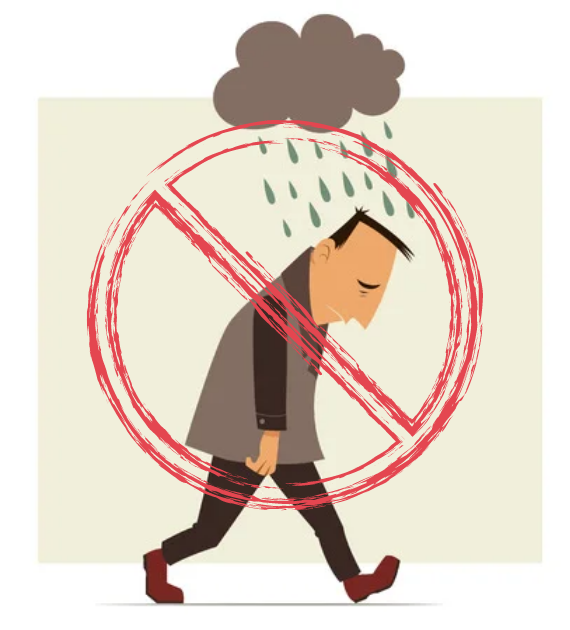Readings: Exodus 34:29–35 | 2 Peter 1:16–21 | Matthew 17:1-9
Text: Matthew 17:1-9
There was a temptation for Peter, James, John, and the disciples to think of Jesus as merely human. True, they had seen His miracles, and heard Him call Himself the end-times “Son of Man.”[1] But they also knew His mother and family, they had seen him eat and drink, get tired, and use the latrine. Their minds could not conceive of a man who was also God and the Christ.

We have the opposite temptation, to think of Jesus as only God. It’s true, we just confessed, “He was incarnate by the Holy Spirit, born of the Virgin Mary and was made man, and was crucified also for us under Pontius Pilate. He suffered and was buried.” But we also sang “Your lightnings lighted up the world; the earth trembled and shook,”[2] we prayed for Christ to have mercy upon us, and we praise “Thou that sittest at the right hand of God the Father.”[3] Our minds have trouble conceiving of a God who “increases in wisdom and stature, and in favor with God and man,”[4] or who doesn’t know the day or the hour,[5] or who cries out, “My God, my God, why have you forsaken me?”[6]
But whether we stumble over His humanity or His divinity, we, together with Peter, James, John, all stumble over the cross. And that’s what happens on the mount of Transfiguration. To help us better understand, we have two models: Moses and Elijah on the one hand, and Peter and the 2 disciples on the other. They’re put side by side, so that we, the saints on earth, can learn to become the saints in heaven.
In Moses and Elijah, we see those whose sanctification is complete. They stand in the Lord’s presence forever. In their earthly lives, they bore witness to the coming Savior—Moses in the Law, and Elijah standing in for all the Prophets. Both exited this life in an extraordinary way—only God knows where Moses is buried, and Elijah was taken in a flaming chariot to heaven. Yet the words of St. John’s Revelation, also echo for them: they now “rest from their labors, for their deeds follow them.”[7]
From Moses and Elijah, we learn how to rightly view the passion and death of Jesus. First, we see it in how they talk with Jesus about it. Luke’s Gospel adds the detail that they were speaking about Jesus’ “exodus,” about to be accomplished in Jerusalem.[8] They speak of the passion with thanks and praise, because they are living in what Christ has done for them. They are standing there in God’s presence because God’s Son has taken their sins away. He has destroyed death for them, so that they can live with Him forever. So, they are joyful to be able to see the world’s salvation about to take place.

Second, we see Moses and Elijah rejoice in God’s will. They say a glad “Amen” to how God has planned to save the human race. They acknowledge that, even though His ways are higher than their ways, His will is always good.[9] They are certain that God has never lied or deceived or forsaken, just as He said. So, when they hear that the Christ “must go to Jerusalem and suffer many things from the elders and chief priests and scribes, and be killed, and on the third day be raised,”[10] they praise God for His saving work.
Finally in Moses and Elijah, we see God’s children at home. The Son of God has prepared a place for them in what He is about to do on the cross. These saints in glory have finished their wanderings, they have been taken out of the land of their sojourning, and they have crossed the Jordan into the eternal land of promise.[11] In other words, God has given them all that He promised during their lives. “Surely goodness and mercy followed them all their days of their lives,” and now they “dwell in the house of the Lord forever.”[12]
But in Peter on the mountain, we see the struggle of God’s people in this life. Moses knew this struggle when he broke faith with God at the waters of Meribah.[13] Elijah knew it on Mount Horeb, when he was positive that all Israel had gone after Baal.[14] And it’s our struggle too, as “strangers and pilgrims”[15] in this life.
First, when Peter sees this blessed sight, he wants to hold onto it tight. “Lord, it is good that we are here. If you wish, I will make three tents here, one for you and one for Moses and one for Elijah.” He’d be happy to have just these six on the mountaintop forever. If only we could come to worship, be surrounded by the Word of God, and never have to leave! But this is not God’s will. Jesus already said what the will of God is: that He “must go to Jerusalem and suffer many things…be killed, and on the third day be raised.” He can’t stay on the mountain, because then the world would never be saved. Peter is again filled with satanic thoughts, which delight in the things of man, not the things of God.
And it’s the same for us, because our sinful flesh fights suffering and death. When someone we love gets very sick, what do we pray for? Do we pray that this disease would mean their release from this vale of tears? We usually pray for them to continue in this life with us. And when God’s will for us is painful suffering, do we pray, “Not my will, but thine be done”[16]? No, we pray for God to take away all crosses, so we can get back to our life.

But actually, the suffering and death of our Lord remind us that our life does not belong to us. God led His beloved Son to that suffering and death, and raised Him from the dead. His will is good, because at the Father’s heart is love. He loves each of us in Christ with the same fervor. And that means that our life is completely in God’s care. Should He send or permit us to suffer? He will use it for good: “And after you have suffered a little while, the God of all grace, who has called you to His eternal glory in Christ, will Himself restore, confirm, strengthen, and establish you.” (1 Pet. 5:10) Should we get sick, or even die? Our life and caring for the needs of our loved ones rests in His hands. “So then, whether we live or whether we die, we are the Lord’s.” (Rom. 14:8)
That brings us to the second thing we see in Peter: He thinks he has a better plan than God. Say no to suffering and being killed, Jesus. Forget Good Friday and get straight to Easter. Surely You can save another way. Just live forever and keep teaching, healing, and doing miracles. If you are the Son of God, pray for God to just forgive everyone.
These same kinds of blasphemies come out of our minds when we think about God’s election and evangelism. We may not despise the cross itself, because by it we are being saved.[17] But, we don’t like what it means. When we look at the massive number of people who don’t know or refuse to believe in Jesus, we are tempted to think: If God really loved the world, He could have done something more to make the world believe and have eternal life. Then, we wouldn’t have to mourn for our grandchildren and friends who renounced their childhood faith. But, in fact, His Spirit moves where He wills (John 3:8), God calls whom He wills, and He puts His children in the world to show His mercy in word and deed. The power to change hearts rests with Him.
Finally, we also see in Peter, a child of God longing to be at home with the Lord. Even if his way of getting there is misplaced, Peter wants to “dwell in the house of the Lord forever.” He longs to stay on the mountain with the heavenly host, surrounding Jesus. His heart is in the right place…sort of. But what Peter wants to hold onto is only the smallest fraction of what God has laid up for His people. Yes, we will be with the Lord, but there won’t just be five saints around the Lord’s throne. When the Lord brings His people home, there will be a “great multitude which no one can number.”[18] It won’t just be on an isolated mountaintop, but there will be “a new heavens and a new earth” and “the dwelling place of God will be with man.”[19] Then, unlike the fleeting joys we have in this life, it won’t be a passing moment. The sorrows and tears of this life will be gone, and death will be swallowed up forever.[20]

The Lord is merciful and gracious toward His people. He helps us in our longing for the promised life to come. After Peter had been silenced and terrified, his Heavenly Father spoke these clear words: “This is My beloved Son, with Whom I am well pleased; listen to Him.” And the great vision at once disappeared, but Jesus remained.
“Jesus came and touched them, saying, ‘Rise, and have no fear.’ And when they lifted up their eyes, they saw no one but Jesus only.” “Listen to Him,” the words still rang. He came to Peter and the others—struggling as sinners by birth and saints by faith—and raised them up with His Word. He strengthened them with the Word they needed to reach where Moses, Elijah, and all the saints rest.
And that’s the same way He cares for us. When our flesh and the devil lead us into doubt and sin, Jesus raises us. Rise from the dust, O man, and have no fear. He speaks to us:
I forgive you all your sins in the Name of the Father, and of the Son, and of the Holy Spirit.[21]
Take; eat. This is my Body which is given for you. Do this in remembrance of Me. Take; drink. This is my blood which is shed for you for the forgiveness of sins. Do this as often as you drink it in remembrance of Me.[22]
These are the words of God’s beloved Son, here for you today. Listen to Him. Amen.

[1] Daniel 7:13-14
[2] Psalm 77:18
[3] Gloria in Excelsis, LSB 188
[4] Luke 2:52
[5] Mark 13:32
[6] Matt. 27:46
[7] Rev. 14:13
[8] Luke 9:31, “departure” is exodus in Greek
[9] Isaiah 55:9, Romans 8:28
[10] Matthew 16:21
[11] Hebrews 11:13; Deuteronomy 10:19, 29:5
[12] Psalm 23:6
[13] Numbers 20:10-13
[14] 1 Kings 19:10
[15] Heb. 11:13
[16] Luke 22:42
[17] 1 Corinthians 1:18
[18] Revelation 7:14
[19] Revelation 21:1-4
[20] Isaiah 25:9
[21] John 20:22-23 & Matthew 28:19
[22] Matthew 26:26-28
Leave a Reply